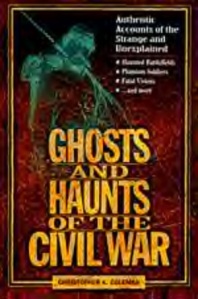
One might think that after one has written over 100,000 words on a subject–in this case, Ambrose Bierce and the Period of Honorable Strife–one has said all there is to say on a subject. But that is not the case; there are any number of miscellaneous sources, topics or quotes which simply don’t fit into the book; similarly, for every question which one answers about this enigmatic American author, other questions arise as a result of new research or discoveries.
Here below, for example, is a classic bit of Bierce: Ambrose Bierce declaiming against a famous Civil War regiment whose fame Bierce felt was less than deserved. In the early days of the war, when Washington was virtually surrounded by Secessionists, the arrival of the 7th NY Militia was eagerly anticipated and they were widely viewed as the saviors of the Nation’s Capitol.
Bierce’s view of the regiment and its accomplishments may have been a bit jaundiced: for one thing the 7th was known as the “Silk Stocking” Regiment, because its membership included many of New York City’s social elite. Their service record mainly consisted of suppressing demonstrations and strikes by workers and organized labor–often mislabeled as “riots.” Bierce, who in later life was at pains to distance himself from his humble origins, may have harbored a bit of a grudge against the New York patricians. Also, Bierce was a member of the “Bloody Ninth”–the 9th Indiana Volunteer Infantry–who amply earned their nickname in the fierce battles of the western theater, which was in sharp contrast to the “Bloody Seventh” which Bierce emphasizes did most of its fighting in the hotels and taverns of Washington DC and precious little in the field. Their unwillingness to volunteer for the Spanish American War apparently summoned up old memories of their rather timid Civil War record in Bierce, whose prose rose to the occasion. Whatever one’s view of their war record, those who appreciate Bierce’s acid wit will certainly relish this prime example of his sarcasm:
Ambrose Bierce on the 7th NY
No matter “where rolls the Oregon,” the famous Seventh Regiment of New York is indubitably safe. And despite the lapse of time and mutations in its personnel, it is the same old Seventh Regiment of the Civil War period. True, it did not then unanimously resolve to merit the Humane Society’s great leather medal for saving life, as virtually it has now done; but as a matter of fact it then did save many lives, and all were lives of its own members. This noble benefaction it accomplished by governing its own temper—and he that subdueth his spirit is greater, and as a rule safer, than he that taketh a city. If the Seventh of that far day had suffered itself to fall into anger and uncharitableness offended Nature, who
“hides hr lash In the purple-black of a dyed mustache.”
Might have sentenced that impetuous organization to be shot at and, if overtaken, hit. As it was, the Bloody Seventh advanced upon Washington, then held by a superior force of the regular army, captured and occupied some of the strongest hotels in the place, and after several weeks of brilliant and startling dress parades returned as grizzled veterans in New York without the loss of a man. The regiment did not re-enlist, but in Central Park a costly monument to its valor, “Like a tall bully, lifts its head and lies”; for it is inscribed with names of “members of the Seventh” who fell in battle. There is nothing to show that, righteously disgusted with their own regiment’s policy of peace on earth and good will to men, they had left it, and that they fell as members of less pacific organizations. It is not so very bad to be “dead upon the field of honor” if one have the good luck to be counted twice—a double patriot with twin renowns.
In unanimously voting to remain at home while Spain is abroad, and thereby drawing upon themselves a hot fire of patriotic reprobation, the star-spangled Quakers of the Seventh are especially blamable, for they compel many a war-willing patriot to remain at home also in order to deliver the fire. As members of the firing squad some of us are withholding from the service of our country military abilities of the highest order.
“War Topics” San Francisco Examiner, May 22, 1898
For more on the Civil War, also see Ambrose Bierce and the Period of Honorable Strife. Also read Ghosts and Haunts of the Civil War and The Paranormal Presidency of Abraham Lincoln.


